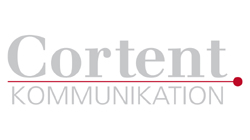The German Mittelstand
German industrial SMEs don’t suffer from the “German Angst” apprehension

German SMEs are forecasting growth as usual for 2016 according to a survey carried out on behalf of the SME Commission of the German Federal Confederation of Industry (BDI) and chartered accountant/company auditor Price Waterhouse Coopers AG . The results that emerged from interviews with some 800 companies were published in mid-January 2015. 40.3 percent of companies questioned rated their future prospects as “very good” or “good” while 43.4 percent rated their prospects as “satisfactory”.
The slash in oil prices, interest rates that have never been so low, together with a stable employment market make these numbers only to be expected. Nor is there anything unusual in there being more scepticism surrounding the national political and economic outlook for the next twelve months than the perception that individual SMEs have of their own prospects. The continuation of trade restrictions with Russia, and the downturn in Chinese GDP are drawbacks to the hoped for positive results in exports. Furthermore, better capitalization and continual and enhanced growth on the ground strengthen a company’s substance and self-respect over the previous major crisis of 2008 and 2010.
It was more or less at that time that WGZ Bank, DZ Bank and Bundesverband der Deutschen Volksbanken und Raiffeisenbanken (BVR) conducted a survey among SMEs. Approximately 1300 industrialists and small company owners in Germany spoke of their hopes and aims for the first half of 2016.
These results, however, are different. Without going into detail, the Autumn targets are substantially lower than they had been the previous Spring. One, or perhaps the only consolation was the BVR executive board member’s appreciative remark regarding the “quality of the accounts” that for German SMEs continued to be high and which prepared them well “for the coming years”.
While the surveys carried out by BDI / PwC on the one hand and WGZ Bank/DZ Bank/BVR on the other are not identical, the gap between the 2016 results of the group called Industrial SMEs and those of the less specific denomination called simply SME is indeed surprising.
One possible explanation could be a lack of overlap between the two surveys or perhaps different models for collating and gathering data. There is no single plausible explanation for such different results. Confidence in one’s own resources come up against what is known abroad as “German angst”.















